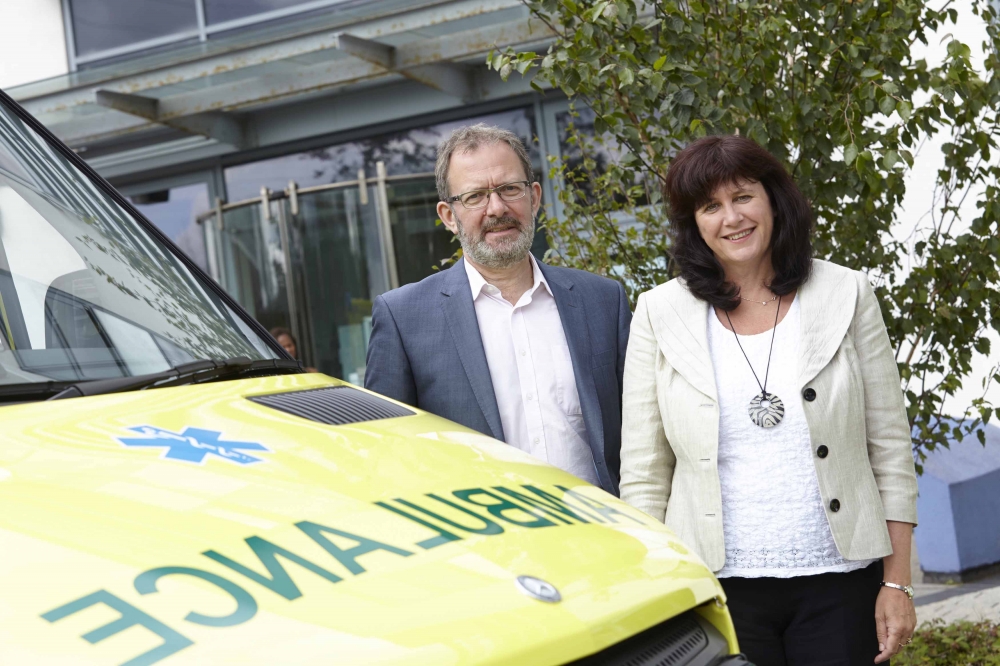Survey reveals burden alcohol places on ambulance staff
Almost half of North East paramedics have been subjected to alcohol-fuelled physical assaults whilst on duty, according to a new survey.
The report published today (Wednesday 19th August) by Balance, the North East Alcohol Office, also reveals that 2 in 5 of the paramedics surveyed have been sexually assaulted or harassed by patients and members of the public who have drunk too much.
Unsurprisingly, they’ve had enough – with 3 in 5 saying they shouldn’t have to deal with the consequences of alcohol misuse.
Balance joined forces with the North East Ambulance Service (NEAS) to carry out a survey of more than 350 paramedics. The results lay bare the true feelings of the hard-working staff who have to deal with alcohol-related incidents on a daily basis.
The report also revealed:
- More than 9 in 10 NEAS paramedics feel that dealing with alcohol-related callouts places an unnecessary burden on their time and resources.
- Two-thirds of paramedics said alcohol-related incidences accounted for at least half of their workload during weekend evenings.
- Two-thirds of paramedics stated that they felt at risk of physical assault when working in the night time economy.
- 9 in 10 have been threatened at least once and almost half six or more times.
- Two-thirds of paramedics stated that in excess of 75% of callouts for assault were alcohol-related.
An experienced female paramedic, who took part in the survey, said: “I’m regularly sworn at by patients, their friends or relatives. The fear of being assaulted or sustaining injuries is increased when dealing with intoxicated patients.”
A fellow colleague also shared her experiences of dealing with drunk patients. She said: “The sexual harassment from males can get out of hand. I tend to ignore this so to not start any conflict but many a time I do say to stop or I’ll get the police. Sometimes the threat of police can calm them but most of the time the threat or their presence can make things worse.”
In 2013/14 Balance estimated that alcohol misuse cost the North East around £911 million including a cost to the NHS of £242 million.
Yvonne Ormston, NEAS Chief Executive, said: “Our crews don’t just deal with drunk weekend revellers; our crews see the effects of alcohol at all times of the day and all times of the week, spread across our region and from patients of all ages and backgrounds.
“For our staff, this is more than a job. But alcohol related calls take up far too much of our time and are often an abuse of our service, taking our resources away from patients who need us most.
“Intoxicated patients take much longer to triage on the phone and are more likely to be aggressive, placing staff in potential danger and increasing their stress levels.
“We take a zero tolerance approach to assault and support staff every step of the way if they have been abused. All staff also have access to a counselling service and a number of helplines to ensure their mental health is looked after as much as possible.
“We are pleased to be working with Balance to highlight the issues we face.”
Colin Shevills, Director of Balance, said: “It’s outrageous that paramedics don’t feel safe in their working environment as a result of other people’s alcohol misuse. These are people who are there to help us when we need it most, yet they are living in fear of physical and verbal abuse on a daily basis. How many of us would expect to work like this?
“It’s clear from this report that our paramedics are personally paying the price for the alcohol misuse of others. This is an unnecessary burden on time and resource and it is completely unsustainable.
“Our relationship with alcohol is out of control. We need to bring it under control by making alcohol less affordable, available and less widely promoted. We need the Government to support a range of targeted, evidence-based measures such as increasing the price of the cheapest, strongest alcohol products, which has been shown to save lives, reduce hospital admissions, cut crime and lessen the financial burden alcohol places on frontline services.”
*Read the full Paying the Price report below
